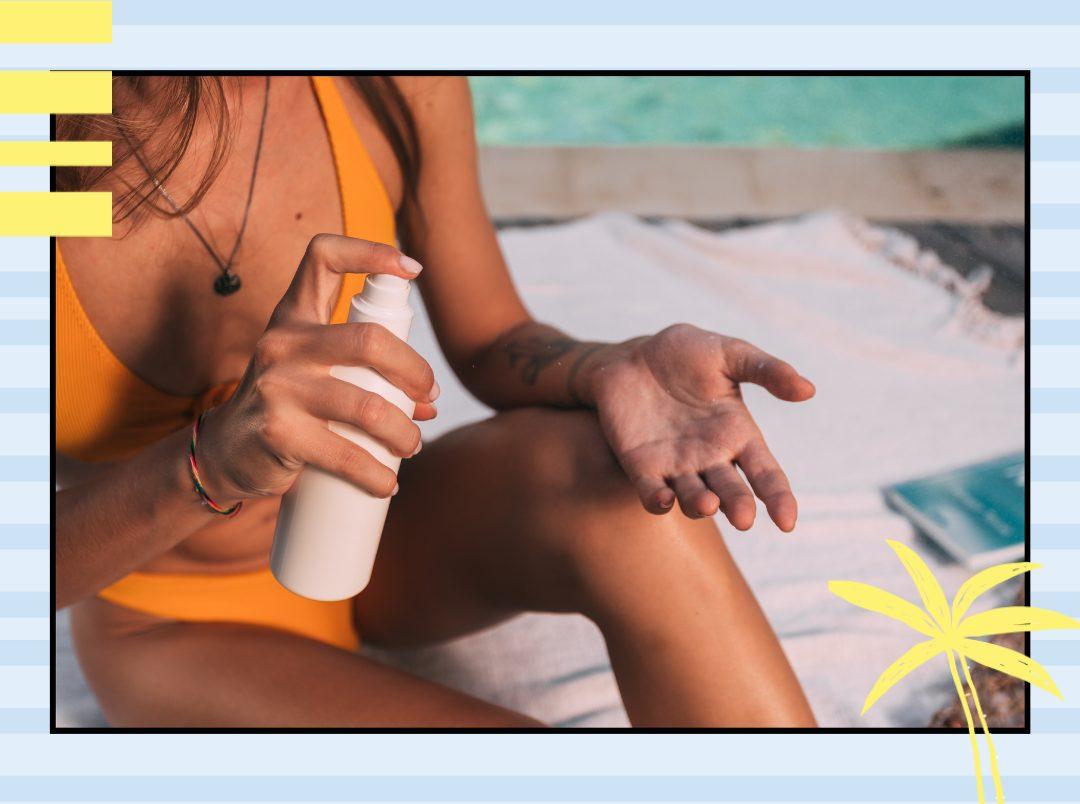Dermatologists are real quick to school you on how important it is to slap on sunscreen even if there’s only a tiny chance you’ll see the sun during the day. We agree with them, obvi. Though it gives us life- literally- the sun is the potent beast that doesn’t discriminate against anything in its path. Its UV rays downcast like targeted laser beams that cause unwanted signs of premature ageing, including fine lines, dark spots, uneven skin texture, wrinkles, and thin skin. Worst of all, consistent exposure could cause skin cancer.
So if you’re not wearing sunscreen all day, every day, it’s officially time for you to do some intense adulting and sun-proof your skin on a daily basis. But if you’re not absolutely sure which SPF to choose, especially if you hate the feeling of sunscreens, have oily skin, dry skin, sensitive skin, sweat a lot, or whatever other excuse you can think of, then today is your lucky day. Because we rounded up some of the most burning questions you have about sunscreen, including how safe and effective it is, and how to pick the right one for you.
Everything You Need To Know About Sunscreens

Is It Safe To Wear Sunscreen Every Day?
Yes, in fact, it’s recommended. We’ve said it a hundred times, but it bears repeating- sunscreen is an intrinsic part of any skincare regime. It is not only the ultimate elixir to protect your skin from the sun’s harmful rays but it also helps in tackling pigmentation and premature ageing. Wearing your sunscreen every single day could help you save the money you spend on pigmentation and skin treatments. Yes, you should wear it even when it’s cloudy.
What Is Mineral Sunscreen?
Also commonly known as a physical sunscreen, mineral sunscreen is an SPF product consisting of active ingredients like titanium dioxide or zinc oxide. These ingredients form a physical barrier that reflects the light rays away from the skin. If you have sensitive skin or acne-prone skin, it’s best to get a mineral sunscreen. Mineral sunscreens often get a bad rap for being goopy and sticky. However, the modern formulas are much more enjoyable to wear. They have come a long way from their chalky, white, hard-to-spread predecessors. Physical sunscreens are easy to apply and they look great! But still, even the modern formulations are even thicker than chemical sunscreens and may feel heavy to some people.
What Is Chemical Sunscreen?
Chemical sunscreen is a category of SPF that uses active ingredients to absorb the sun rays, turn them into heat, and then release the heat through the skin. Oxybenzone, avobenzone, octisalate, octocrylene, octixonate, and homosalate are a few ingredients that are commonly used in chemical sunscreens. As chemical formulas tend to be lighter, sheerer – so they are generally more favoured by consumers over the years. However, the active ingredients in chemical sunscreens can be pretty irritating if you have acne-prone or sensitive skin. Chemical sunscreen has also been shown to have some adverse environmental effects.
What Is Tinted Sunscreen?
Wearing sunscreen with makeup adds an extra layer to your skin, which ultimately gives a cakey and greedy look. Tinted sunscreens easily blend into your skin and provide excellent coverage to your blemishes and dark spots. It doesn’t leave a white cast and offers both UV as well as blue light protection. Tinted formulas are great for folks with acne-prone or sensitive skin.
How Much SPF Is Enough?
SPF is the most crucial part when it comes to buying sunscreen. SPF refers to the ability of a sunscreen to block ultraviolet B rays which cause sunburns. Plus, the SPF rating is the measure of the time it would take to get you sunburnt if you were not wearing sunscreen as opposed to the time it would take when you have your sunscreen on. So the higher the SPF, the longer it would take for your skin to develop a sunburn. So if you’re wearing SPF 50, it would take 50 times more time to get burnt than without the sunscreen. Dermatologists recommend using an SPF of at least 30 or higher. SPF 30 blocks 97 per cent of the sun’s UVB rays. Products with higher SPF numbers block slightly more of the sun’s rays, but no sunscreen can block 100 per cent of the sun’s UVB rays.
What’s The Deal With Broad Spectrum Sunscreens?
As we know there are two types of sun rays i.e., UVA and UVB. UVA rays are responsible for causing age spots and wrinkles while UVB causes burning. Broad-spectrum sunscreens provide protection against both kinds. The measure of UVA is the PA rating that is determined by the plus signs and the UVB is measured in SPF aka sun protection factor.
What Does The PA+ Sunscreen Symbol Mean?
PA+ basically refers to the amount of protection grade the sunscreen offers against the harmful UVA rays. From low to extremely high – the rating differs. If you’re buying sunscreen, anything with PA+++ offers high protection and is good enough.
Does SPF-Infused Makeup Work?
Yes, SPF-infused makeup products are a great addition to your stash. However, the makeup alone won’t be able to stave off the harmful effects of the sun. Why? Because we tend to apply lesser amounts of makeup than the amount of sunscreen we would need for sun protection. Sure, a makeup product with SPF is a great add-on but it’s important to apply a layer of sunscreen underneath your makeup.
‘Coz SPF = BFF!
Featured Image: Pexels
.



